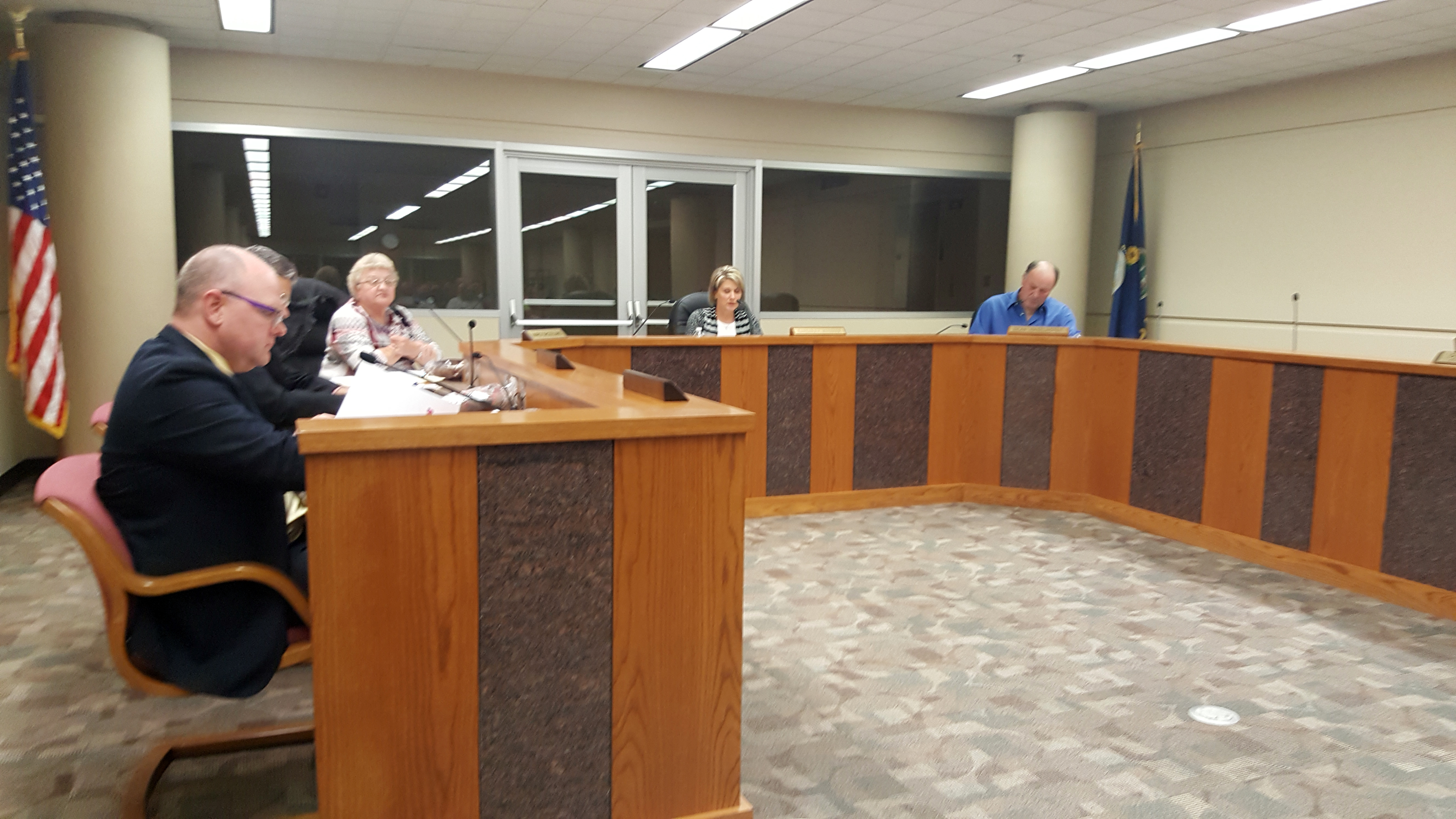By JONATHAN ZWEYGARDT
Hays Post
In front of a large crowd Monday, the Ellis County Commission voted to opt out of the Public Employer-Employee Relation Act ending the negotiation of wage and benefits with the unions.
It was Commissioner Barb Wasinger who brought the idea before the commission and Wasinger, along with fellow commissioner Dean Haselhorst, voted in favor of opting out of the more than 45-year-old resolution while commissioner Marcy McClelland voted in favor of continuing PEERA.
Wasinger said in a statement that only 28-percent, or 55 of the county’s 197 full-time employees, are members of one of the four unions – Public Works, EMS, Courthouse and Sheriff. All four fall under the Service Employees International Union.
“What has concerned me for a few years is that a large number of our employees do not have a formal mechanism to voice their opinions,” Wasinger said. “It is not my intention to strip anyone of their rights”
She also pointed out that all employees have protection under civil service law even if they do not belong to a union.
“I believe I speak for all the commissioners,” Wasinger said, “when I say that the county continues to strive to be a good and fair employer.”
Commissioner Marcy McClelland said she was surprised at the number of employees who were not members of the unions but were benefitting from them.
“I don’t think this is a fair way to do things,” McClelland said.
Commissioner Dean Haselhorst said the move was an effort to fix a broken system and not because the city of Hays, which also voted to opt into PEERA in 1972 reversed that decision last week and opted out of the program.
“I do respect what you do along with the taxpayers of this county that I also represent,” said Haselhorst. “It’s not about who’s in the union and who’s not or who represents them its about making the best decision we can to represent all of the county’s people.”
A large number of county employees attended Monday night’s meeting to and a number of representatives spoke to the commission on the good that unions do for county employees.
Melvin Kinderknecht, chairman of SEIU for Public Works, questioned the timing of the move. He said there has not been any problems brought before the union representatives and said he believes this year’s negotiations benefited everyone.
“We negotiated back and fourth and came up with an agreement that did the most for as many people as we could with the money available,” Kinderknecht said. “We hope to continue that next year to get everyone on the step where they should be and to move the pay plan forward.”
SEIU Business Manger Esau Freeman also addressed the commission at Monday’s meeting and echoed Kinderknecht’s statement on working together.
“We worked in tandem to be able to come up with something that would try to get all these workers up to where they need to be per the Evergreen (wage and benefit) study that you guys commissioned,” said Freeman.
A number of those who spoke in favor of the unions attempted to address the commission’s concern over the small number of union members.
Wilmer Dinkel is a longtime employee of the Ellis County Sheriff’s Department said he believes that many of the employees who are not a part of the unions came to work for the county when the situation was good.
“So why should they sacrifice some of their paycheck for union dues when they are content?” Dinkel said. “I do not believe these people are looking into the future.”
Wasinger called for a permanent wage and benefit commission, made up of current union members and non-union members, to allow all employees a way to share goals and concerns with the county commission.
But many of the speakers suggested the commission would do the same thing the union did.
Sheriff’s office Chair Brian Shannon said the commission’s decision to possibility opt out of the agreement “has been a shock to me. Its been a shock to our unit.”
Shannon said the unions are also more than just a negotiating unit.
“I think the union is so much more than that, it gives a grievance process” he said. “I don’t think we’ve had too many of those, thankfully, but I think also gives an avenue where we can do that where we don’t have to worry about lawsuits.”
The existing union contracts will remain in place through Dec. 31, 2018.
County Administrator Phillip Smith-Hanes said there is no immediate financial impact of opting out of PEERA but staff will have to devote time in 2018 to operating within collective bargaining for the first time in more than 40 years.
